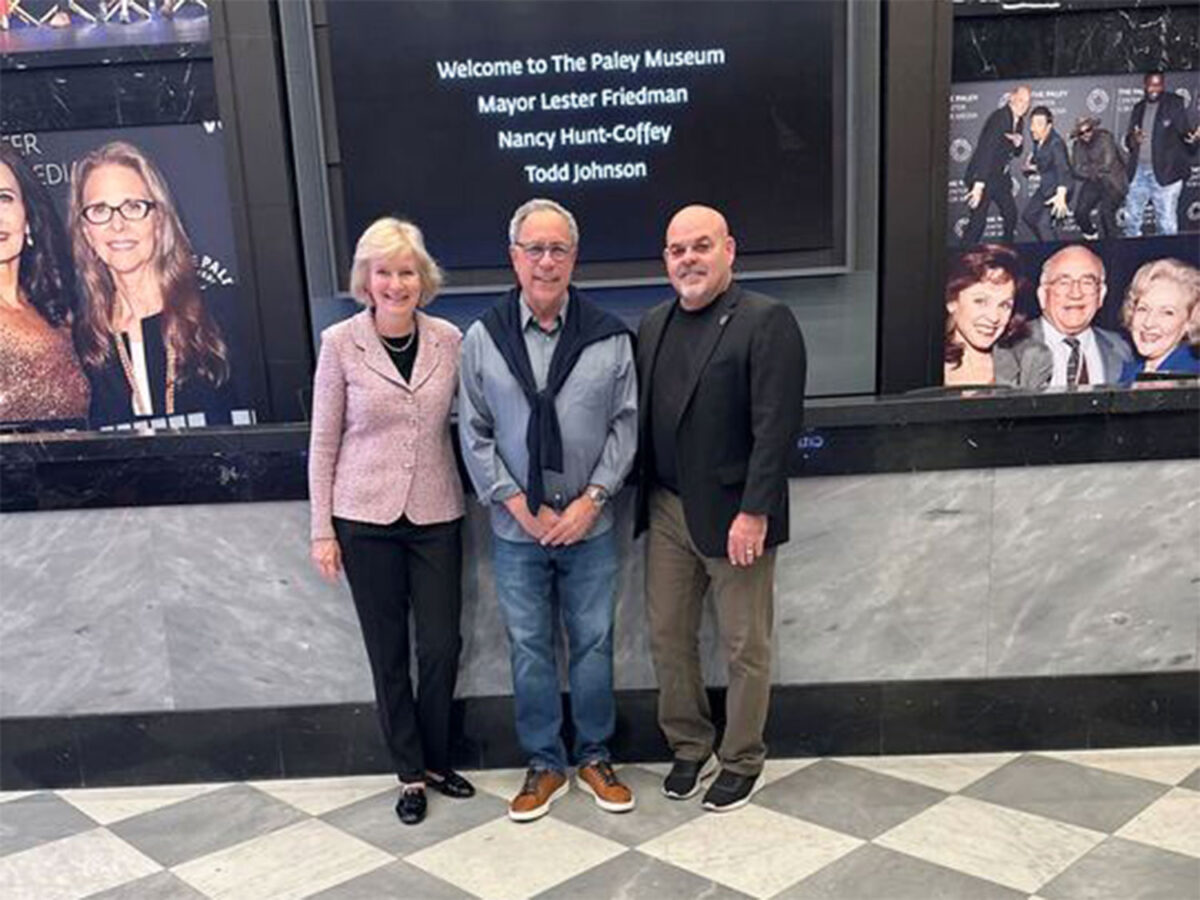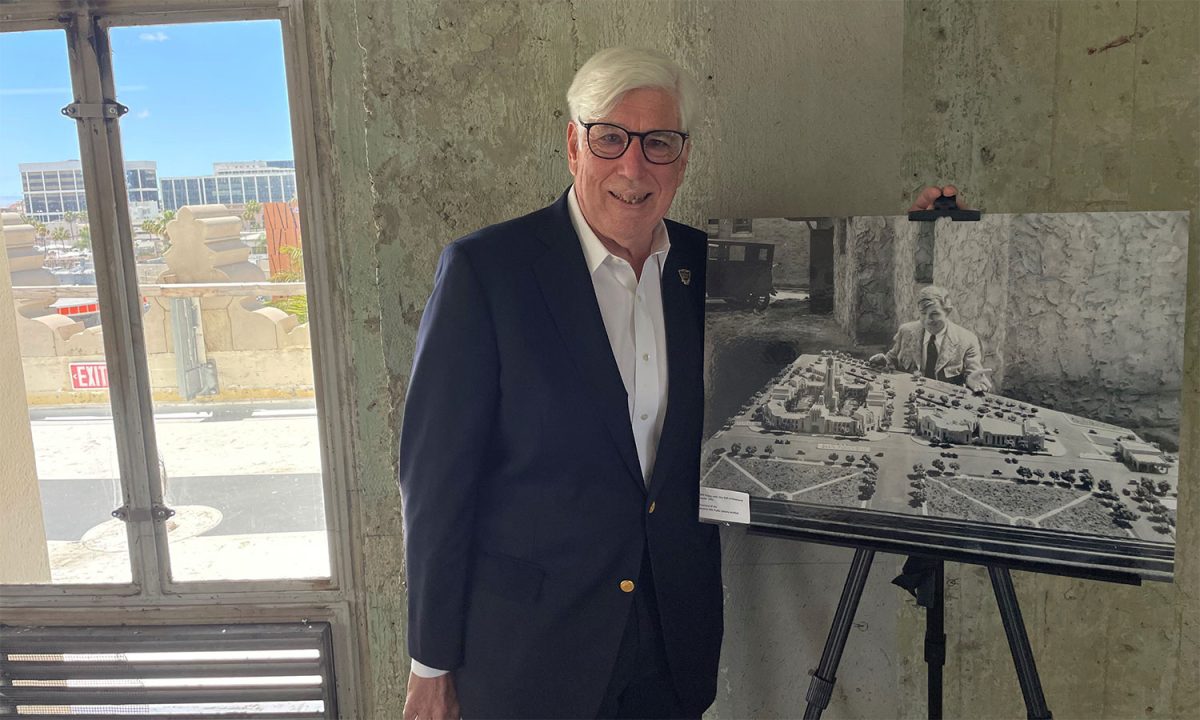The Beverly Hills City Council Liaison-Legislative Lobby Committee Meeting, held Sept. 6, provided the committee’s two Council liaisons—Mayor Dr. Julian Gold and City Councilmember John Mirisch—the opportunity to take positions on a handful of local, state and national legislation.
Participants in the meeting included Jamie Jones, a lobbyist at government relations firm David Turch and Associates, and Andrew Antwih of advocacy firm Shaw Yoder Antwih Schmelzer and Lange.
Mirisch and Gold delivered some of their strongest words of support for the U.S. Senate bill, “End Hedge Fund Control of American Homes Act,” which prohibits individuals and entities from owning more than 100 single-family residences. Mirisch, for his part, has long spoken out against the corporatization of real estate, specifically hedge funds and private equity investors buying up large numbers of homes. The council member said it creates barriers for those ordinary families seeking to purchase single-family residences for themselves.
“This will allow the American dream to be more in reach of people,” Mirisch said, if the bill—which was introduced in 2022 by U.S. Senator Jeff Merkley of Oregon—eventually passes.
The Council Liaison-Legislative Lobby Committee makes recommendations to the Beverly Hills City Council on the city’s position on legislative matters being addressed at the local, state and federal levels. Ultimately, City Council is responsible for the final adoption and expression of the city’s position on legislative matters.
During its latest meeting, the committee weighed legislation that included “10-Year Pilot Program for Trucks with 6-Axles,” which would establish a voluntary decade-long pilot for states to increase truck weights on federal interstates to 91,000 pounds on six axles. Current weight limits are 80,000 pounds on five axles. The committee’s council liaisons said they opposed the legislation on the grounds that they did not believe larger vehicles would serve interstates well.
Another item that garnered the committee’s attention was the “Fifth Amendment Integrity Restoration Act,” which, known as FAIR, was being considered by the committee at the request of Beverly Hills Police Department Chief Mark Stainbrook. The bill, the result of bipartisan efforts in the U.S. House of Representatives, would reform the civil forfeiture asset process by raising the level of proof necessary for the federal government to seize property, among other actions.
But the committee opposed the bill, which was introduced in the House earlier this year, echoing positions taken by local law enforcement, including Beverly Hills Police Department Chief Mark Stainbrook.
“They feel very strongly that this would be awful if we did this,” Gold said.
Supporting another position taken by Stainbrook, the committee’s liaisons opposed State Senate Bill 94, “Recall and Resentencing: Special Circumstances,” which would allow felons who committed serious crimes before 1990 and have been in custody for at least 25 years to petition for resentencing. This includes felons who were convicted of murder. Stainbrook has publicly encouraged community members to reach out to their local legislators about voting against the bill.
The two council members signaled support for the “Voting Thresholds” expressed in Assembly Constitutional Amendment 13 (ACA 13). The committee took a position at the behest of the League of California Cities, an association of cities with the state of California that supports ACA 13. According to the League of California Cities, ACA 13—which passed the State Assembly this month and will now go before the State Senate—was introduced in part because an initiative that qualified for the November 2024 ballot could potentially undermine local control, strip voters’ rights and “decimate tens of billions of dollars of local government tax.”
ACA 13, if passed, would require future ballot measures that increase voter approval requirements to also pass by the same margin. The League of California Cities has called it a “common-sense proposal,” and the committee’s council liaisons indicated they agreed.
But not everything on the committee’s agenda garnered such support. When considering a California constitutional amendment proposal regarding employment workers’ rights, Mirisch said, “This is problematic.”
Echoing a letter of concern issued by the League of California Cities to the amendment’s author, State Senator Thomas Umberg, Mirisch described the language of the measure—which attempts to enshrine the rights of workers to join a labor union and collectively bargain with their employers—as far too “broad.”
While the committee agreed in large part with the League of California Cities’ positions on state bills, the council liaisons said the League did not always represent the views of smaller cities, including Beverly Hills.
“There needs to be a strong voice for smaller cities,” Gold said, adding that Beverly Hills represents 35,000 people against a state of millions and is thus not often considered by the League as the association forms stances on various measures.
Ultimately, the two council members expressed gratitude to the two lobbyists who joined the meeting, saying they provided invaluable help as the committee weighed the 14 pieces of legislation.







